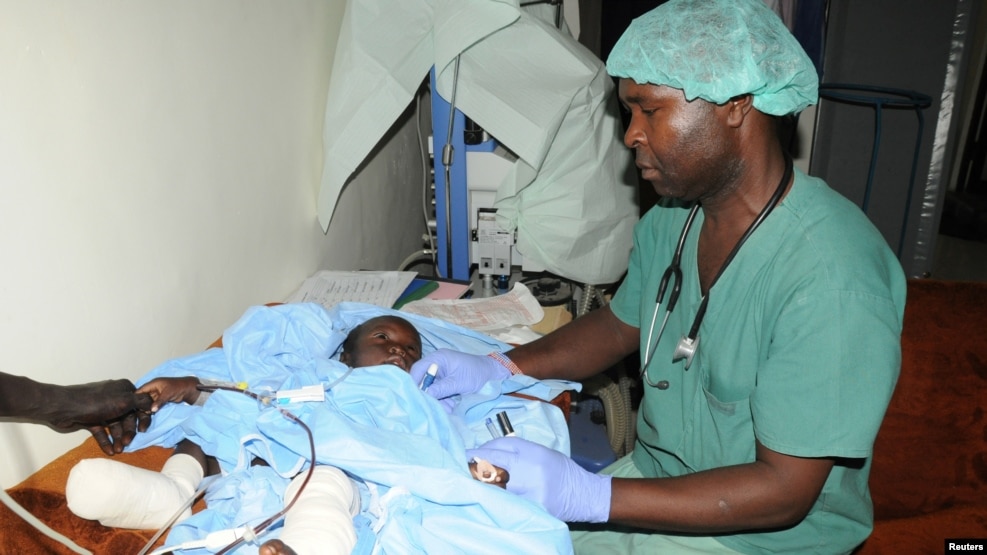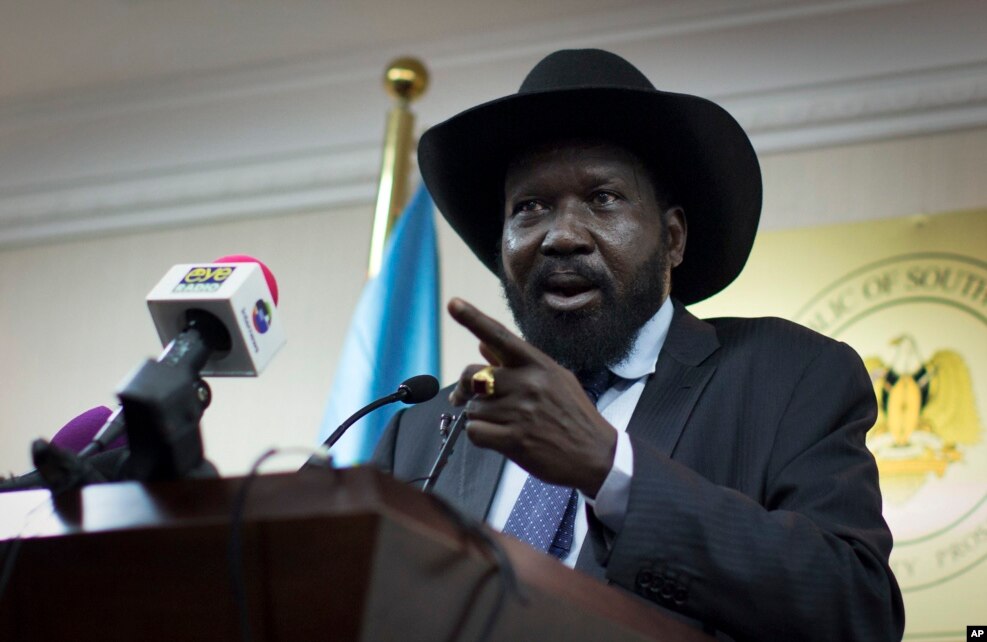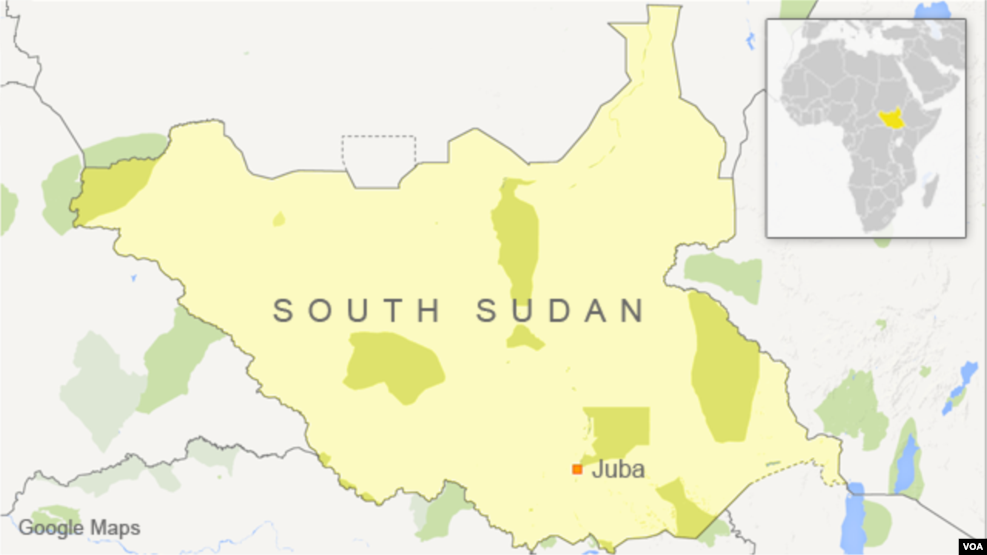Date: Fri, 21 Oct 2016 20:40:50 +0200
S. Sudan President Threatens to Personally Run Military if Road Attacks Continue

A boy who was injured in an attack by rebel gunmen on vehicles on the road connecting Yei town to the capital, Juba, receives treatment at a military hospital in Juba, South Sudan, Oct. 18, 2016.
President Salva Kiir has threatened to personally lead military operations against armed groups in central South Sudan if gunmen continue to attack civilians along a key road.
Kiir said Thursday that he would go to Yei River state to plan military operations if the gunmen do not stop shooting at civilians traveling on the Juba-Yei road.
He made the remarks while speaking to members of his party during an event in the capital, Juba.
Kiir said he is running out of patience with groups trying to topple his government. If his opponents do not pull gunmen off the road, he said, "I will relocate to go and stay in Yei, and all the operations that will go out will go under my directives and my supervision."

FILE - South Sudan's President Salva Kiir speaks to the media at a press conference in Juba, South Sudan.
Kiir's remarks come on the heels of fresh fighting between government and opposition forces in parts of Yei River state.
Last week, government and U.N. officials condemned killings believed to be ethnically motivated along the Juba-Yei road, as well as other attacks on the Juba-Torit and Juba-Nimule roads.
Kiir acknowledged that the South Sudan army is dominated by his own ethnic group.
"The new slogan which people are now singing is that this army has become a tribal army," he said. "Why is it composed of Dinka? But where will I get people from if the people of Equatoria [region] have refused to join the army and Riek Machar has rebelled with his Nuer people? So where will I get other nationalities from?"
Despite the road attacks and the fighting between South Sudanese government and opposition forces in parts of the country, the president says he is still committed to restoring peace in South Sudan.

Festus Mogae, the head of the Joint Monitoring Evaluation Commission, which oversees implementation of the 2015 peace agreement, condemned the fighting between government and opposition forces while conducting the first meeting of JMEC in Juba since deadly fighting broke out in July.
Mogae warned that unless the peace agreement is implemented, violence could escalate.
"We have said that the agreement is alive because we are not giving up on the peace, because there is no option anyway," Mogae said Wednesday.
Mogae urged the Transitional Government of National Unity to include all political groups as it implements the peace agreement.
Government spokesman Michael Makuei said it is wrong for people to think there will be no peace in the country without former First Vice President Machar and his allies Lam Akol and Pagan Amum. No single leader or group, he said, has control over the agreement.
"There is no question of us negotiating a new agreement with anybody who has taken up arms,” Makuei said. “We are here to negotiate to bring everybody into this agreement so that we move together in its implementation."